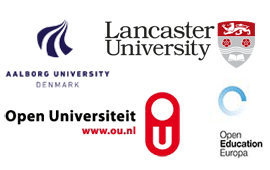

Effectiveness of Guests in Large Enrolment Online Courses as an Instructional Strategy
Jane Costello, Linda E. Rohr, Memorial University of Newfoundland, Canada
This paper introduces preliminary findings of an evaluation of the design-effectiveness of the guest instructional strategy focusing on guest speakers' effectiveness for learning (Costello, 2012; 2014a, b) and enhancing social presence (Short, Williams & Christie, 1976) in a networked learning course. HKR 1000, Fitness and Wellness, is an introductory online course widely subscribed by students at Memorial University, seeing about 1000 yearly registrations. In each of the three (fall, winter, spring) thirteen-week semesters, sections of 80 students are virtually combined into one course shell within the learning management system (LMS), Brightspace, formerly Desire2Learn (D2L). In the spring and fall 2015 semesters the design-effectiveness of the guest instructional strategy was evaluated based on students' perspectives (N=688). Effectiveness was determined by whether guests impacted student learning, related to course content, provided real life relevance, and fostered social presence. While large enrolments in online courses are not typical or favoured, it is possible to effectively design instructional strategies that use social learning (Rohr & Costello, 2015) to enhance learning and social presence. Content for HKR 1000 focuses on key topics for living healthy, active lifestyles, including basic principles of physical fitness, cardiorespiratory endurance, muscular strength and endurance, flexibility, body composition, nutrition, stress and weight management. To further highlight the link between real world experiences and course content, guest video presentations and discussions were included in the online course environment. Guests bring a unique perspective to a learning community as an integral, authentic resource impacting student success both in their learning and their professions (Costello, 2014b, Finkelstein, 2006). The use of guests as an instructional strategy (Costello, 2014a, Lowenthal, 2009) also served as a means to increase social presence in the course. The guests each appeared for a week during the semester, their topics being tightly linked to specific course content. Each had a unique, relevant area of expertise to share and provided a short 2-4 minute video clip and engaged in discussion with the students in the LMS discussion forum for the remainder of their respective week. An anonymous survey was administered in the learning management system to collect student feedback on these matters. Questions explored whether the students viewed the videos, posted questions, and read the discussion forums. In addition students were asked to reflect on the approachableness and warmth of each guest. Results indicate a positive guest impact on student learning, provision of real life relevance and enhancement of social presence.
Keywords
Human Kinetics and Recreation, guest speakers, social presence, networked learning, learning design
Joint Organising Institutions
| Conference Travel and Accommodation |Doctoral Consortium | Past Conference Proceedings | Contact |